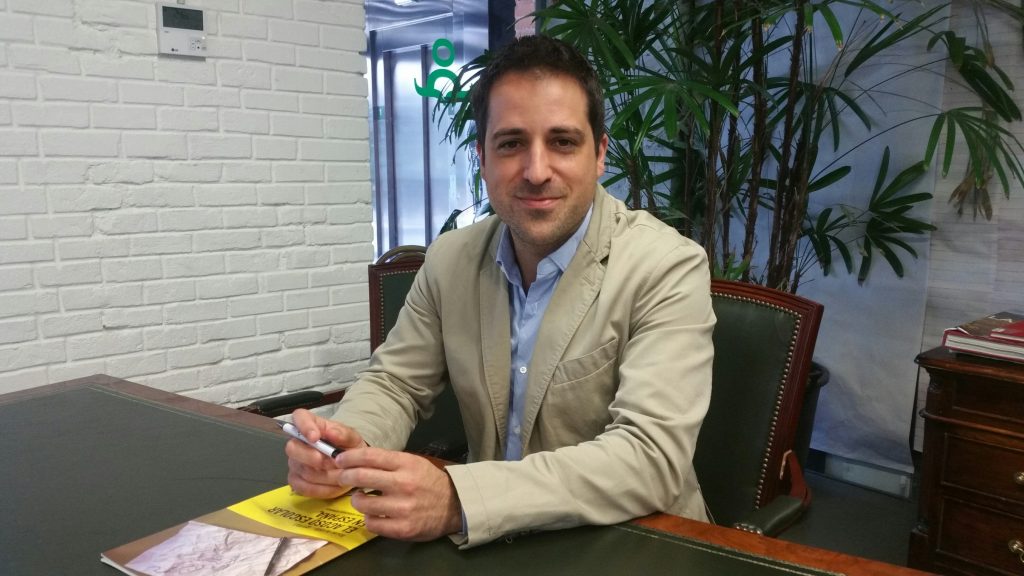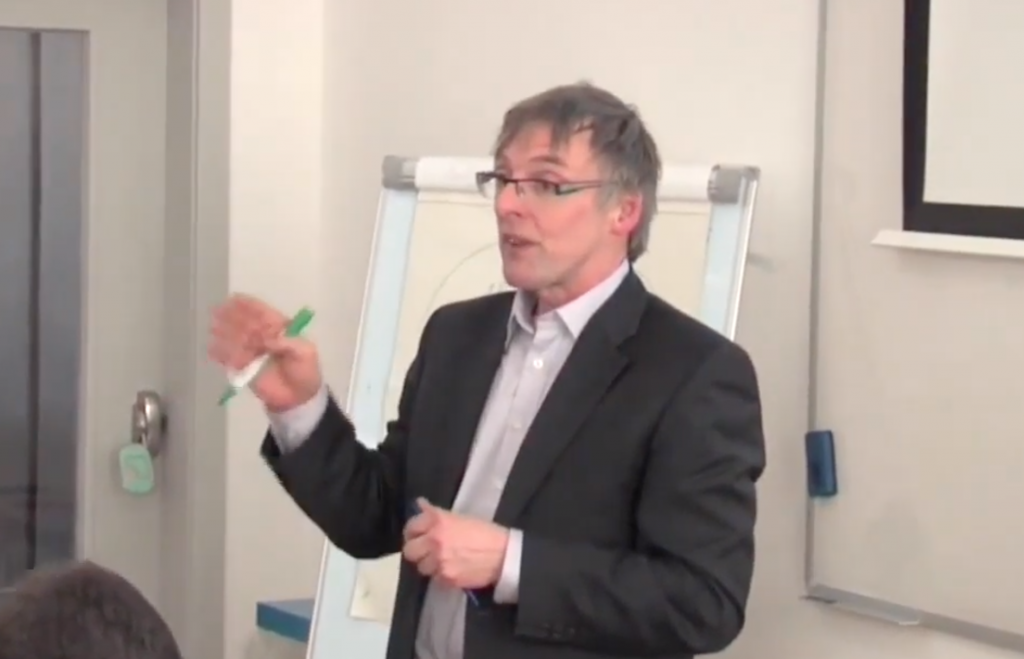The Supreme Court has ruled that prime minister Boris Johnson’s suspension of parliament was unlawful – an apparent step towards resolving one of the greatest constitutional upheavals in UK history.
But the protracted legal battle between the government and MPs, weeks ahead of the looming Brexit deadline, has prompted the question: is it time for the UK to adopt a written constitution?
Lady Hale announced on Tuesday (24 September) the court’s unanimous ruling that Johnson was wrong to ask the Queen to shut down parliament for five weeks.
The move was declared “unlawful, void, and of no effect” because it prevented parliament from carrying out its “constitutional functions”, including holding the government to account amid the ongoing Brexit negotiations, “without reasonable justification.”
Speaking outside the Royal Courts of Justice, Green Party MP Caroline Lucas welcomed the judges’ decision, but added: “It is the clearest sign yet that the shape of our 350-year-old unwritten constitution has been outgrown by the state of modern Britain [and] that who are constitution belongs to and where it is going really matters.
“The prime minister tried to claim it for his own. He thinks that the lack of written rules means that he can do what he likes, including closing down parliament when he chooses.”
Our democracy has survived, thanks to the #SupremeCourt
But it should never have come to this
We cannot trust the political class to give us democracy
We must create it for ourselves, with a written constitution, drawn up by citizens-led assemblies pic.twitter.com/U4IXZX7qpl
— Caroline Lucas (@CarolineLucas) September 24, 2019
She called for Johnson to step down, adding: “It’s also time for a written constitution, a people’s constitution. We cannot trust the political class to give us democracy. We need a democracy we can all believe in and trust.”
What Do You Mean The UK’s Constitution Is ‘Unwritten’?
A constitution is a set of fundamental rules and principles that set out how a country is governed. This includes the relationship between the people and government, and particularly the human rights that the government must respect. It also includes the relationship between different branches of government – the judiciary, the executive and parliament.
The United States has a written, or “codified”, constitution, which means it is all largely contained in one specific document.
The UK’s constitution, on the other hand, is not. It is instead based on a hodgepodge of conventions, precedents, ancient customs, and traditions, as well as laws passed by Parliament.
Many have argued that UK’s “uncodified” constitution has its merits, including its flexibility to adapt to the issues of the day.
But Caroline Lucas, among others, argue that it can ambiguity on the relationship between the different branches of the state, giving rise to abuses of power and constitutional crises.
As the debate continues, with increasing fervour, EachOther has gathered here the views of a selection of lawyers, academics and activists on what a how a written constitution could be formed and what it could mean for our rights.
We Must ‘Transcend Party Political Allegiances’

Dr Liora Lazarus. Image Credit: Liora Lazarus.
Dr Liora Lazarus is an associate professor of law at Oxford University who specialises in human rights and constitutional law, among other areas. She writes:
“Brexit has generated a widespread recognition that the UK is in the midst of one of the greatest constitutional upheavals in its history. Consequently, there is growing interest across and outside the political parties in revisiting some fundamental aspects of the UK constitution.
“But there is no question that any future constitutional settlement must be capable of attracting broad support: a prerequisite of lasting constitutional design. Consequently, the processes by which any future constitution is built must be as genuinely inclusive as possible. In the UK, this means in particular moving beyond party political interests, and drawing in the four constituent countries of the UK with equal respect and concern.
“We can learn from other countries that have adopted innovative ways in which to establish constitutional consensus, often through the use of ‘mini-publics’. Citizen’s assemblies, constitutional councils or constitutional conventions have been used in a large variety of countries, some of which have even used crowd sourcing technology to garner proposals. These bodies normally make proposals which are verified through a process which holds democratic legitimacy, this may include requiring a certain percentage of the voting population, or subsections of that population, voting in favour in a clearly regulated process.
“The deliberative process of formulating the proposals, and the democratic process of accepting these proposals, needs ultimately to be designed to transcend party political allegiances. Without this, we will always be left in the UK with unstable constitutional settlements which are associated with one party or another. Constitutional design requires more than this; it requires a moment of genuine national deliberation, designed in good faith and premised on mutual concern and respect.”
‘This Is An Opportunity To Reflect The Sort Of Country We Want To Live In’

Dr Koldo Casla. Image Credit: Amnistía Internacional España
Dr Koldo Casla is human rights campaigner and research associate at Newcastle University who is currently working to draft the UK’s first ever Social Rights Bill. He writes:
“The UK is one of the only three countries that does not have a written constitution yet, together with Israel and New Zealand. The Brexit process is showing that a written document would be immensely helpful for the sake of legal certainty.
“Constitutions normally contain provisions relating to the form of the state, procedural guarantees of the rule of law, accountability and democratic decision-making, and a bill of rights.
“In recent years, Iceland, Ireland and other countries have explored models of constitutional conventions involving members of the public, in some cases chosen randomly, to think about the rules of democracy and the rights for all citizens.
“Regardless of whether and when we depart from the EU, Brexit is a constitutional moment for the UK.
“This is an opportunity to reflect about the sort of country we want to live in. And the rights to food, housing, social security and other social rights should be considered a central part of that future. They are the material conditions we all need to be truly free and to contribute meaningfully to society.”
A Boon For Police Legal And Democratic Accountability?
Benson Egwuonwu is a legal group member of StopWatch, a charity which promotes fair and accountable policing. He writes:
“The UK constitution has traditionally relied on a heap of statutes, common law, documents, and political conventions. Yet the fragility of our constitutional settlement has been exposed by the controversy of Brexit and an increasingly domineering executive. Our uncodified constitution, it seems, is no longer tenable.
“Our human rights must be protected under a written constitution. The Human Rights Act 1998 (HRA) protects our human rights against arbitrary, unlawful or disproportionate state action. This is important, especially where our rights have been violated by the police and security services. However, the HRA is also vulnerable to repeal by a simple parliamentary majority. A majority government opposed to human rights can exploit this for political gain.
“Under a codified constitution, we can entrench our human rights so that they cannot be easily disposed of or diluted. Such a constitution could, for instance, ensure that the purpose, powers, and duties of the police and security services are clearly defined and subject to legal and democratic accountability.
“Drafting a new British constitution would be a complex affair. It would require expertise, political will and the active participation of the population. The final document should be scrutinised and voted on by Parliament. If done correctly, enacting a written constitution would be a ground-breaking development in our political, legal and social history.”
A Constitutional Guarantee To Ensure LGBTQ+ People ‘Not Treated As Second Class Citizens’
Allan Briddock. Image Credit: One Pump Court.
Allan Briddock is a barrister specialising in asylum, immigration, and anti-modern slavery law. He writes:
“I have always believed the UK should have a written constitution in order to have fundamental rights and law that cannot be changed willy nilly by the politicians in power of the day. An unwritten constitution relies entirely on the presumption that politicians will respect norms. Brexit, in particular under the current government, has shown us that it is far from guaranteed, and politicians in highest office cannot be trusted to respect the law, let alone an unwritten constitution.
“If there were to be a written construction, in an ideal world I would like to have complete separation of religion and the state, such as the system in France. This is far from realistic, bearing in mind we have a constitutional monarchy where the monarch is also the head of the Anglican church. The contrary allows persons to enforce their religious beliefs on others.
“Take, for example, publicly funded schools, many of which are religion based. Although it may be the choice of the parents to send children to those schools, in my opinion the government should be prevented from funding it. Teaching religion in schools can lead to the indoctrination of innocent minds, and sometimes that indoctrination extends to discrimination and even hate.
“Being more realistic, I would like there to be a constitutional guarantee that no law directly or indirectly discriminates against persons on the grounds of sexuality or gender identity, similar to the South African constitution. Even in 2019 discriminatory laws exist; take, for example, the fact there is no same-sex marriage in Northern Ireland, or the fact transgender persons need to apply to a secret panel to officially change their gender. When a law is proposed on these issues the political parties usually allow a free ‘conscious’ vote. A constitutional guarantee to equality would prevent this and force politicians not to treat LGBT+ persons as second class citizens.”
‘In Scotland, We Already Have An Interim Constitution’

Pete Ritchie. Image Credit: YouTube.
Pete Ritchie is the executive director of Nourish Scotland, a not-for-profit campaigner on food justice issues. He backs the calls for a second referendum on Scottish independence that have been spearheaded by the Scottish National Party, and which could inevitable impact on a UK constitution. He writes:
“It has been 30 years since the Scottish Constitutional Convention – an association of Scottish political parties, churches and other civic groups – met in Edinburgh and paved the way for a devolved Scottish parliament ten years later.
“The convention was chaired by the late Canon Kenyon Wright, a Scottish Episcopal church priest and campaigner for Scottish devolution. I had the privilege of working with him on “People and Parliament” – a project set by 11 ordinary people to find out how people in communities across Scotland feel Parliament should conduct itself.
“I believe these steps on the journey to remaking our nation will lead in the next few years to a Scottish constitution – and, inevitably, to a remaking of England. Fundamentally, a constitution defines the relationship between the people of a nation, setting out our core values and articulating how we consent to be governed.
“In Scotland, we already have an interim constitution which starts with the statement: “the people are sovereign”, which was developed in the lead up to the 2014 referendum on Scottish Independence. In preparation for the next referendum on Scottish referendum we are discussing the part referenda should play, alongside elections – with proportional representation, in which all legal residents can vote – in translating ‘the will of the people’ into law.
“Brexit caught the UK unprepared, and the latest spat on prorogation underlines the need for a reboot. UK lawyers have helped new nations across the world to set out their aspirations and values in their constitutions; we now need to do that work here and welcome outside perspectives and experience. Equality, dignity, and rights will be at the heart – but also, as each constitution reflects its historical era, we will see transparency, genetic integrity, privacy, and the environment as major pillars of our new Magna Carta.”









